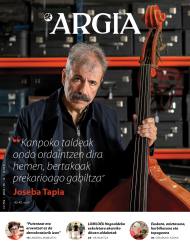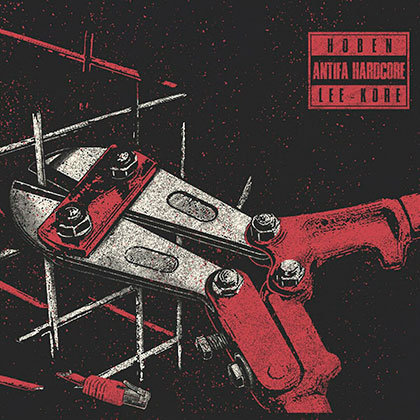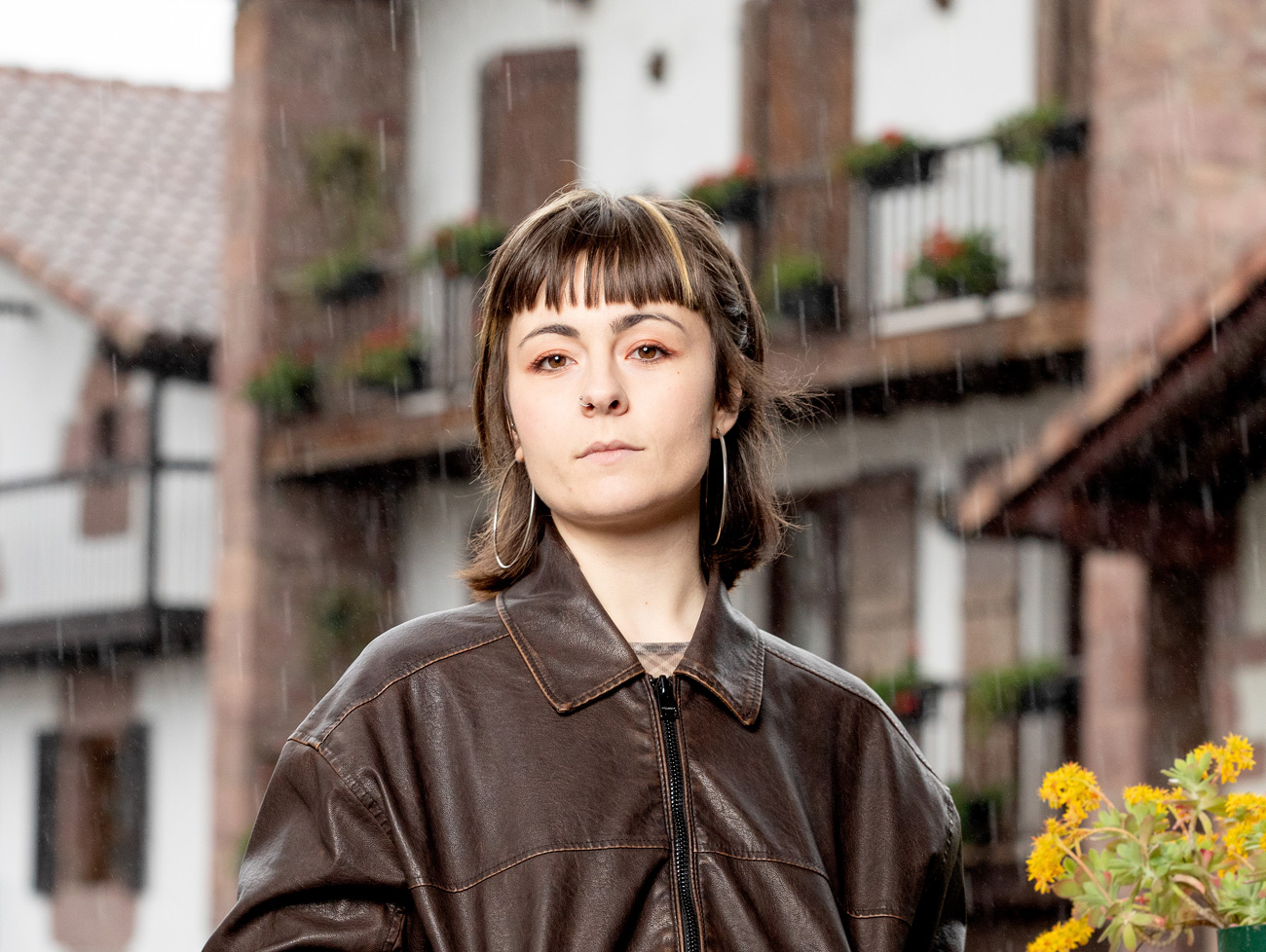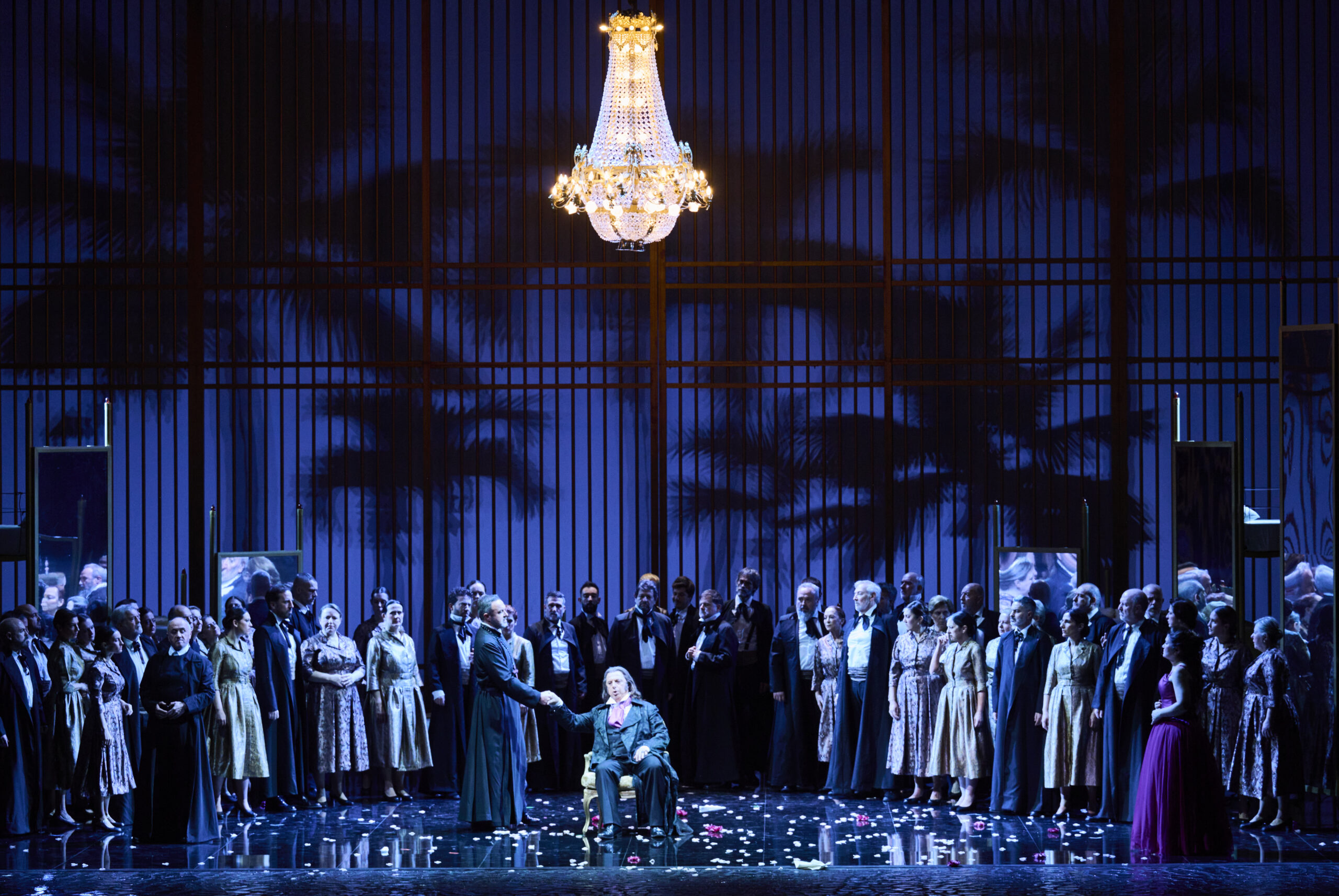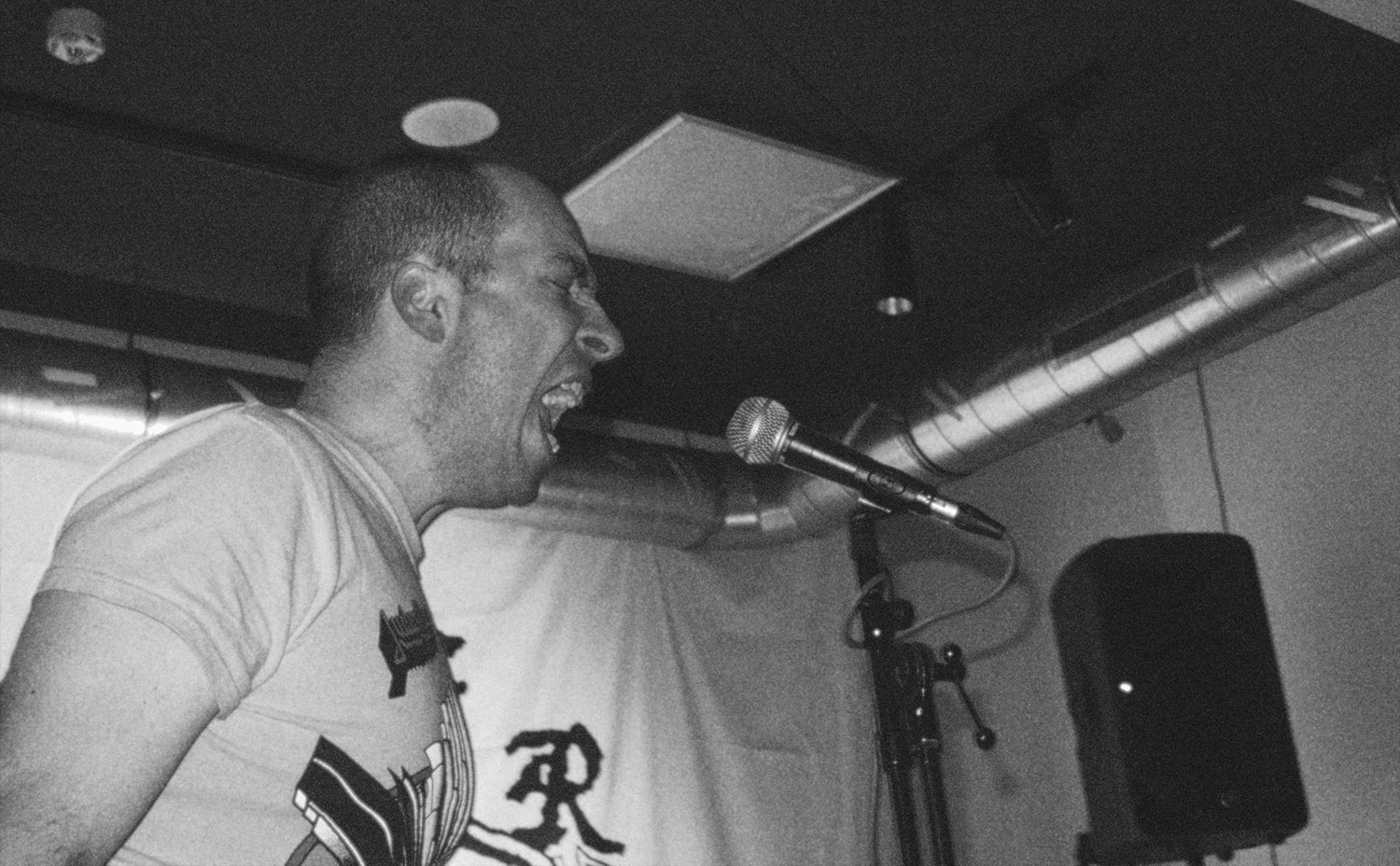"In the Modern excuse we prefer Spanish"
- Joseba Tapia (Lasarte-Oria, 1964) has released her ninth solo album. The news comes when we were talking about it: this year Donostia Kultura has awarded the Adarra Prize as recognition of his trajectory. We have broadened the focus of the interview and, with the excuse of the prize, we look over the long years on stage, the special connections we feel as a musician, the reasons why we jump from a pilgrimage environment to a more personal wager, etc.

How have you received the Adarra Award?
I don't like the prize or the tribute, and I never imagined myself in that situation. It will be a sign that I have aged [laughing]. In any case, I understood the prize as a recognition that is due to the entire team behind my name and I thought I had to say yes.
When he spoke, he spoke of Mikel Laboa. The musicians of your generation received from him the passion to break the genres.
I feel the same group as the previous winners, at an early age. In addition to the same profession, we are in the same action: resistance. The singers who are working only in Euskera have a supplement: they do not program us, and we do not appear in Spanish media, in ours we also have less and less room. However, we have made an artistic commitment to work for the Basque, because we are sure that the Basque needs a new song to survive. This crazy march of the world, or uneasiness, continuously presents us with new challenges. We must continue to enjoy in our language. We can't live looking back, we have to offer new grasps to our world, and to do so we have to leave space for the new generations to break, beautify, kick, innovate. Mikel Laboa was always attentive to the new forms of young people, perhaps very far from him. I'm also very interested in understanding what they're doing.
Throughout your career there is a constant desire for search.
I started studying chromatic sound with Miguel Bikondo. He created an important, very high-level school. We had to learn new, often very complicated ways, and maybe that passion for search comes from that contemporary world. He also had an insatiable thirst for trikitixa. With the accordion, I was trying to get that irrintzis out of the small sound, but I couldn't get it all. In the end, like many of my generation, I left the chromatic sound and took the trikitixa at the age of 14. Junkera, Zabaleta, Motriku, Miren Etxaniz, Imuntzo, Leturia… The Kaletarras invaded the rural world and they welcomed us patiently, but calmly. The rural world was more closed to our eyes, and exterior innovations, styles, garments… We were more modern, we were attracted to other music.
"The trikitixa is very curious: at the beginning it is strange, dirty, breaking; then folkloric; it starts to take out our records and it becomes strange, dirty and breaking again"
What, for example?
We heard rock and jazz. The Beatles, Eric Clapton, Queen, Eagles, the country world… The first rock groups in Euskera also started then – Errobi, Koska, Indar Trabes – as well as words like Egan, Akelarre. They all made versions of Anglo-Saxon songs. How good they were! The world of trikitixa was very different. My uncle taught me songs of romerías like Amparito Roca, Gallito, Memoria Florido, and a very wide repertoire of fandango and arin-arin.
Did you start bringing your new references to romerías?
At first we did the usual dance, but soon we began to introduce new influences. In the trikitixa, only new songs were made. We took great sound, but we needed news, especially for competitions. Inevitably, we ourselves began to create new songs, in which the lizard Jesús Mari Esnaola helped us a lot. There were no records, and when the first proposals came, we were short legs. In that radical social change everything was new: the leap from the rural to the urban world, the ikastolas, politics… nationalism also needed new images and, among other things, looked at the trikitixa.
I have read to you that trikitixa was a modern instrument before nationalism folklore.
The trajectory of the trikitixa is very curious. At first – XX. at the beginning of the century – I was weird, dirty and shattering. But people wanted it, and even though it was hidden, they did romerías and dances. Little by little the trikitixa was euskaldunified: then he was happy, healthy and ours. It gave identity to the Basque world. It became folkloric, we were dressed in baserritars. But we started taking out our records, and then it was once again weird, dirty and breaker. To, 180-degree deadly lap! That was rock, not the trikitixa of yesteryear. But the young people wanted, persecuted us and so the trikitixa became a symbol and representative of Basque music.
The attachment of the rural world to the label of authenticity would also help…
That gave him some sort of ethnicity, yes. That is why I say that the evolution of the trikitixa is very curious: in all music and conservatory schools it became a star instrument, the registrations were much higher than all other instruments. Alboka, txalaparta or dulzaina also lived a great boom and became very virtuous. Aside from this forgiveness there was a great sound, which in its day was very important, as it had cut off contact with the popular.
Was there a purist reaction to this expansion of trikitixa?
Yes, they were written against our championships and new songs. In the Diario Vasco, a letter came out saying that it was not a trikitixa and that if it continued on that path it would end. Round tables on the subject were also organized. At the theoretical level, all this change raised concern and was normal, because there was a generational change. However, most people saw as a complement to the trikitixa and the new usual wave.
And what were those championships for you?
For me, it was something like selectivity, like a toll to go to college. Also recognition. In that social change the championships had a great tyranny, but there was also injustice: only recognition is given to the former and all the style and artistic contribution of those who have not been the first is discarded. In a ball game it may not happen, but the art world is subjective and there are many opinions and likes. I mean selectivity, because after the championships began our artistic careers. However, the championships allowed us to present new songs. He started us in creation.
.jpg)
He left the atmosphere of the pilgrimage and began a more personal journey.
Yes, there was no room for both. As a child, I knew the fascination with the song and the lyrics. My uncles would take us to Ez Dok Amairu's concerts and we would record those concerts, then we would transcribe them and finally we would sing some of those songs with the Spanish guitar. We didn't understand half, but we intuited something special in the irony of Xabier Lete, in that dance of words, in messages, in structures. As with the Lekeitio and the curiosities of Laboa.
Despite these changes, your career also shows you your loyalty to a wager. How is it achieved?
By intuition, I would say. Here at the beginning each one was strengthened in his own style – we saw similar conflicts outside Euskal Herria, between rockers and fashions, for example. But suddenly they began to mix the forms, those mixes were welcome, the one who listened to Kortatu could listen to Kaxiano, Negu Gorrie pulled out Bertso Hop, Hertzainak made rock with trikitixa, Oskorri with trikitixa, Ruper included the trikitixa of Josu Zabala, Errobik albovaska… what was music? This question was given several answers. On the one hand, the form marked the Basque style –Quousque tandem–; on the other, the form was the same, the Basque music was the one made in Euskera. We are in that second group, we mix à la carte styles, and we are still Basque. On the contrary, in the Basque style, the people who attack the Basque Country encourage us to sing in Spanish: “Sing in Spanish for at least one song, otherwise I don’t understand you and it’s a pity.” If we access Spanish, we are rewarded, modern is associated with Spanish, and we often prefer Spanish in modern Spanish.
One of its demands is ecology: decent living conditions must be guaranteed for local music.
I haven't invented ecology, but it's OK on this issue. In our little world, the best thing is always the outside, and we try to copy, but then when we've gone abroad, they want to try our cheese, not our Coca Cola. They want to hear us in Basque, not English. This showed that the world is composed of each of us, and since then I began to attach more importance to our own and to demand dignity. Outside groups pay well in Euskal Herria, but those of us here are more precarious: we have a lot of problems with contracts, we have obstacles in the treasury. We have recently brought together professional creators in Basque in Lanartea. Putting pressure on all of us may achieve some dignity in our profession.
You just fired us from being or not, eight years after the last album with new songs. How has the process been?
I give birth to the text. Their rhythm and tone lead me to invent the melody. Sad, dramatic, ironic -- I try to sew the most appropriate clothing. Afterwards, the sound treatment of the entire disk will be designed. In this case, I decided to record with the current group and started making arrangements. I also wanted to try some songs with string orchestra. In the end I have put together a dancing rhythm and a more serious text, and vice versa. By mixing humorous texts with a more classical adaptation, it seemed to me that I achieved a good balance. Chromatic sound has been an essential tool for creating sound and adaptations. It has helped me in the search and organization process.
In the promotional videos of the album you have had the help of the Mafia Chill. They see you as a referent. Remember any other strong connections along your trajectory?
After recording the album, we approached the Chill Mafia, designing the promotion, because we realized that they mentioned me in their songs. In the music I have often felt special connections: At the age of 16, for example, I was impressed by the concert by Orio de Errobi. Anje Duhalde, Mixel Ducau, Beñat Amorena and Jean Paul Gill. What was that! Until then, I didn't know any rock band from that category, live with a huge sound. I remember another unforgettable concert: Radio Popular organized “24 hours in Basque”. Fill up the velodrome, the tension party and the lighter! Representatives of the modern Basque song in the song, such as Sakabi and Egañazpi, Laja and Iturbide. It was terrible. To quote one last: In Intxaurrondo's house of culture, I fell in love with a Pamplona group called Brothers. What strength and what skill! Among them was Ion Celestino. At the end of the concert I approached the stage and explained my fascination. He knew me. Since then we have made two albums together.
We just rewarded, the young people would struggle. Anybody would say you're in foam.
Recognition provides pleasure and means appreciation of your work. However, the opposite often happens, causing discomfort – invention, or presentation of a bad job. With this last album, in an interview a Spanish journalist shook me with admiration: “I’m glad you’ve come back to music.” I have never stopped singing! We need more visibility in our media. The presence of Basque groups in the large festivals that are organised on a travelling basis is limited, with exceptions. We do not have a decent music programme on television either. If I start asking them, I ask them all.
Poliorkêtês
Kerobia
Autoekoiztua, 2025
--------------------------------------------------------
Azken aldian, lerrootan asko nabil hausnartzen musikak izan beharko lukeen “misio historikoaz” eta abarrez. Eta, nolabait, zer egin beharko lukeen... [+]
On March 7, the 150th anniversary of the birth of Maurice Ravel, the best Basque composer of all time. And in LA LUZ a tribute was paid to this composer, recalling the influence of the famous Bolero on the collective imagination.
By chance, Deutsche Grammophon has just released... [+]
Olatz Salvador
Noiz: martxoaren 15ean.
Non: Deustuko jaietan.
------------------------------------------------
Martxoak beti du deustuarrontzat kolore berezia; urtero ospatzen ditugu jaiak, San Jose egunaren bueltan. Bi asteburu bete festa, eta urtetik urtera Deustuko... [+]
Antifa hardcore
Lee-Kore + Hoben
Autoekoizpena
---------------------------------------------------------
Tamalez ez da ohikoa Arrasaten hardcore kontzertuak egitea, bestelako musika eszenak nagusitzen direlako. Hala bada, joan den larunbatean herriko gazte batzuen... [+]
Hunkituta eta ilusioz egin dut Iruñetik Oronozerako bidea. Maite dut Olaia entzutea, baita hizketan ere. Herriko farmaziaren ondoan autoa utzi eta balkoitik agurtu naute hark eta bere zakur Arak. Grabagailua martxan jarri aurretik, bueltaxka egin dugu frontoira eta Arak... [+]
Bizitza eztia
Verde Prato
Plan B Records, 2024
--------------------------------------------------------------
Ousmane Sembène zinemagile senegaldar ospetsuari galdetu zioten ea bere pelikulak Europan ulertzen ote ziren. Erantzuna, epikoa: “Izan gaitezen... [+]
Inoren Ero Ni + Lisabö
Noiz: martxoaren 14an.
Non: Gasteizko Jimmy Jazz aretoan.
----------------------------------------------------
Izotz-arriskuaren seinalea autoko pantailatxoan. Urkiola, bere mendilerro eta baso. Kontzertuetara bideko ohiko errituala: Inoren... [+]
FITXA
Zer: OLBEk antolatutako Gaetano Donizettiren ‘La favorite’ opera.
Nork: Euskadiko Orkestra Sinfonikoak (zuzendaria: Riccardo Frizza) eta Bilboko Operaren Abesbatzak (zuzendaria: Boris Dujin).
Noiz: otsailaren 18an.
Non: Bilboko Euskalduna Jauregian.
Olor
Noiz: martxoaren 9an.
Non: Bilboko Sarean espazioan.
---------------------------------------------------------
Esperantza. iz. Nahi edo desiratzen dena gertatuko delako edo lortuko delako uste ona.
Izen horixe jarri zion Jokin Azpiazu Carballo Olor ermuarrak bere... [+]









